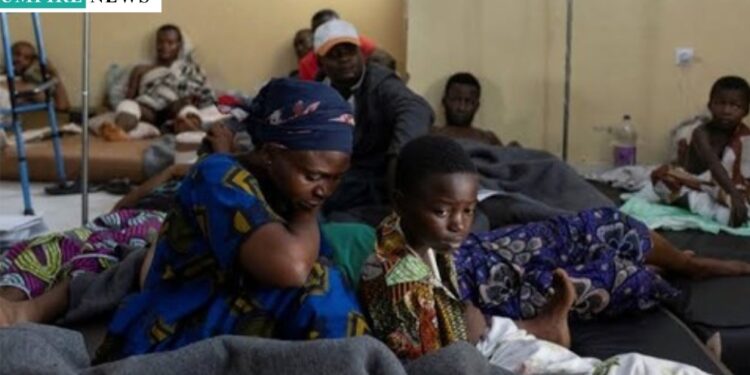The United Nations (UN) has raised a dire alarm over a surge in the rape and sexual abuse of children in the
Democratic Republic of Congo (DRC), revealing that thousands of cases have been recorded in just the first two
months of 2025.
According to UNICEF, children now represent up to 45% of the nearly 10,000 reported cases of sexual violence as
conflict intensifies in the eastern region of the country.
Speaking from Goma, UNICEF spokesperson James Elder described the situation as a “systemic crisis” that is
spiralling out of control. “During the most intense phase of this year’s conflict in eastern DRC, a child was raped every
half an hour,” he stated, citing early data that underscores the growing use of sexual violence as a weapon of war.
The violence is taking place against the backdrop of renewed clashes between Congolese forces and the M23 rebel
group, which the international community says is being supported by Rwanda, an accusation Kigali continues to deny.
The conflict has led to the displacement of thousands, worsening insecurity and exposing children to brutal abuse.
You may also like: UNICEF Deliver Vaccines to Borno State for Cholera Prevention
“This is not about isolated incidents. We are seeing survivors as young as toddlers,” Elder said. He added that the
trauma is not only destroying individuals but also entire families and communities, warning that the reported cases
likely represent just a fraction of the total due to fear, stigma, and lack of safe reporting mechanisms.
UNICEF has called for urgent global attention and action, including better protection measures, survivor-centred
services, and secure ways for victims to report abuse. Elder stressed that international support must be swift and visible: “Survivors must see the world stand with them, not turn away. And perpetrators must face justice.”
The UN’s condemnation comes amid increasing concern over the deteriorating humanitarian situation in eastern DRC,
where decades of unrest have left the population vulnerable to repeated cycles of violence. As efforts to contain the crisis falter, calls for accountability and long-term protection strategies continue to grow.




































